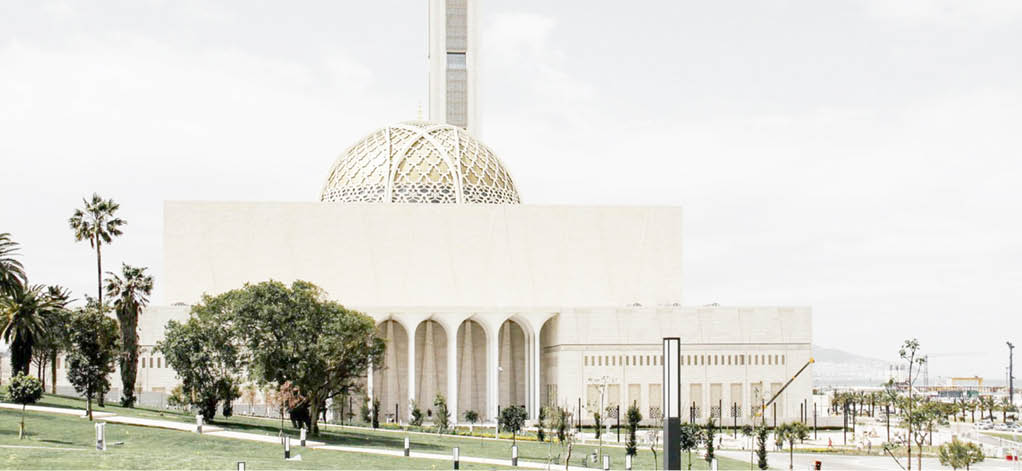Algeria opens largest mosque in Africa after years of delays
Algeria has inaugurated the biggest mosque in Africa, and the third largest in the world after years of delays and cost overruns. The timing of the official opening comes just ahead of the holy month of Ramadan. Although first opened for prayers in 2020, the Chinese-constructed the Great Mosque of Algiers was not open for […]

the great mosque of algeria is the biggest mosque in africa and the third largest in the world
Algeria has inaugurated the biggest mosque in Africa, and the third largest in the world after years of delays and cost overruns. The timing of the official opening comes just ahead of the holy month of Ramadan.
Although first opened for prayers in 2020, the Chinese-constructed the Great Mosque of Algiers was not open for large congregational prayers due to COVID-19-related restrictions. The mosque situated on the Mediterranean coastline also boasts the world’s tallest minaret at 265 metres (869 feet) and can accommodate 120,000 worshippers.
According to The Guardian, the mega-mosque, only eclipsed in size by the Two Holy Mosques of Makkah and Madinah, consists of a modernist design with Arab and North African influences, in addition to a “helicopter landing pad and a library that can house up to 1m books.”
Speaking at the inauguration, Ali Mohamed Salabi, the General Secretary of the World Union of Muslim Ulemas said the opening of the mosque would guide Muslims “toward goodness and moderation.”
US to Israel: Allow Muslims to worship at Al-Aqsa during Ramadan
Hardship: Cleric cautions Muslims against engaging in prohibited acts
During the official opening event, Algerian President Abdelmadjid Tebboune said the “Djamaa El-Djazair” as it is known locally should guide Muslims toward the values of “moderation” and the “rejection of extremism.”
The project, costing nearly $900 million to build, was initially initiated under the administration of former President Abdelaziz Bouteflika, who resigned in 2019 after holding power for two decades. Criticised as a vanity project, Bouteflika intended to name the mosque after himself and inaugurate it in February 2019. However, protests against his rule prevented him from doing so. (Middle East Monitor)
